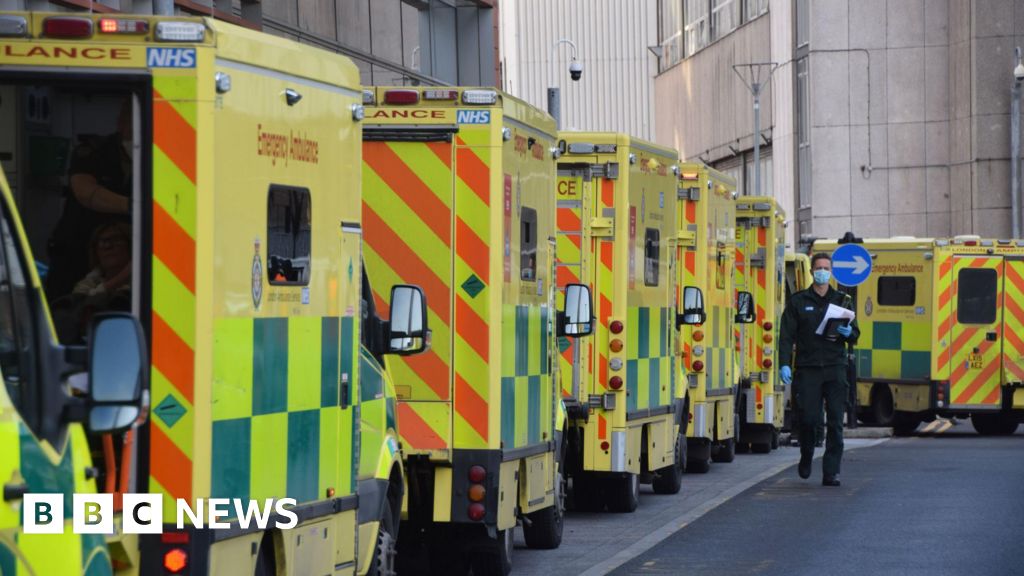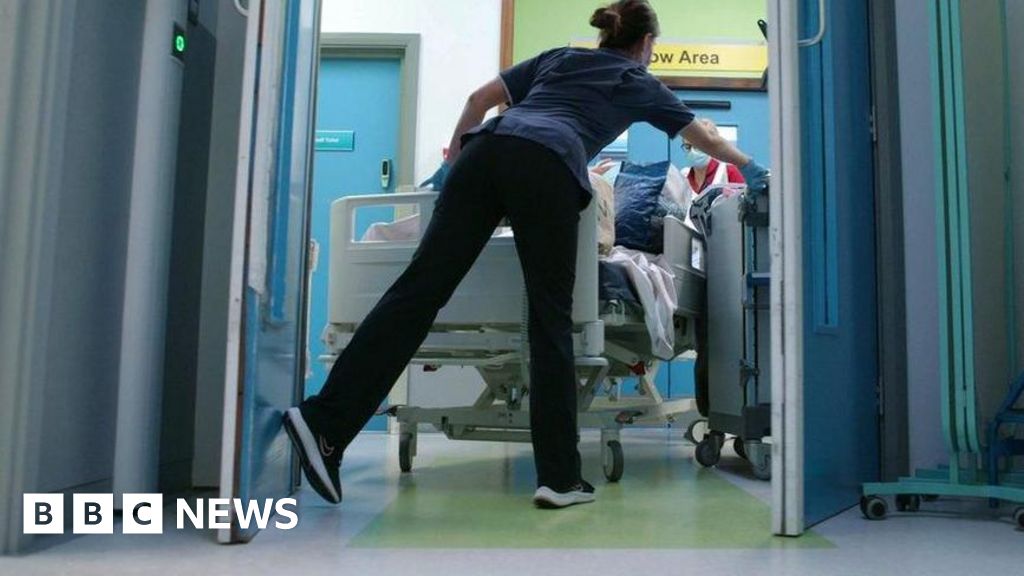ARTICLE AD BOX
By Meleri Williams
BBC News
Image source, Angharad Medi Lewis
Image caption,PCOS left Angharad Medi Lewis with acne
The symptoms of polycystic ovary syndrome (PCOS) became so difficult for one woman, she did not want to live.
Angharad Medi Lewis from Carmarthenshire said "embarrassing" heavy periods and excess facial hair made her not want to leave home.
Neuroendocrinology expert Prof Aled Rees said the impact PCOS has on mental health was under-recognised.
The Welsh government said women's wellbeing was a priority and it would publish plans on how to support women.
'Serious pain'
Mrs Lewis, 41, from Llanybydder, was diagnosed with the condition 20 years ago.
She said she was suffering from the most common symptoms but did not realise the impact it had on her mental health.
Image source, Angharad Medi Lewis
Image caption,Angharad Medi Lewis and her husband Andrew, started trying for a family in 2006
"I was having very heavy periods, I was in serious pain for a whole week every month, growing hair on my face, I was anxious, so worried about going out because of the heavy periods that it was actually embarrassing," she said.
Other symptoms can include irregular periods or no periods at all, difficulty getting pregnant, weight gain, thinning hair or hair loss and oily skin or acne.
"I hadn't realised how bad it had affected my mental health at the time," she said.
Mrs Lewis and her husband Andrew, started trying for a family in 2006 and needed IVF treatment.
This meant stopping her contraceptive medication which had helped to ease the PCOS symptoms.
'Breaking point'
That is when her mental state started to deteriorate.
"I reached breaking point. It was controlling my life," she said.
"Before seeing the doctor in 2019, I had reached a point where I didn't want to live anymore.
"My face was hairy, the pains, just functioning from day to day was difficult."
Mrs Lewis was prescribed anti-depressants in 2019 and advised to prioritise her mental health.
Image source, Angharad Medi Lewis
Image caption,Angharad Medi Lewis said she reached breaking point while having fertility treatment
Ultimately, that meant stopping the IVF treatment and returning to the medication that controlled the PCOS.
"That nurse changed my life." she said.
"All she did was put me on anti-depressant, Prozac, for six months and put me on the mini pill.
"The best words I heard from that nurse was 'forget about trying for a baby for now, you have to look after yourself'."
What is PCOS?
PCOS is a common condition that affects how a woman's ovaries work.
The exact cause is unknown, but it often runs in families and is related to abnormal hormone levels in the body, including high levels of insulin.
Polycystic ovaries contain a large number of harmless follicles that are up to 8mm (approximately 0.3in) in size.
Angharad says life improved after taking antidepressants and the contraceptive pill
The follicles are underdeveloped sacs in which eggs develop. In PCOS, these sacs are often unable to release an egg, which means ovulation does not take place.
'A gap in the conversation'
About one in 10 women in the UK live with PCOS.
According to Prof Rees, a professor of endocrinology at Cardiff University's Neuroscience and Mental Health Research Institute, the condition and its link with mental health side effects "isn't appreciated enough".
"PCOS is very common," he said.
"There's an estimate of around 8-13% of women in the UK living with the condition and it's often a cluster of problems.
"Patients often come to us at the clinic, and it's obvious from the symptoms they describe, that it's going to have an impact on their mental health."
He said there was a "gap" in the general conversation with PCOS patients.
"I think, to start, that the link is under-recognised and under-appreciated," he said.
"There needs to be greater emphasis for patients and doctors that any consultation they have includes a discussion about mental health because there is an effective treatment available".
'Lagging behind'
The charity Fair Treatment for Women in Wales has called on the Welsh government to put women's physical and mental health at the top of the agenda.
Julie Richards, a consultant with the charity, said the mental health impacts of conditions like PCOS and endometriosis, are often forgotten.
"We're lagging behind terribly," she said.
"We need specialist clinics in Wales, and when it comes to women's health generally, we're lagging behind in all areas."
She added: "PCOS is just one of these conditions which affects women's wellbeing and isn't dealt with correctly."
In response, a Welsh Government spokesperson said: "Women's wellbeing is a priority for us.
"We will soon publish our plans which will set out how we expect the Welsh NHS to support women to access the health services they need."

 2 years ago
37
2 years ago
37








 English (US) ·
English (US) ·